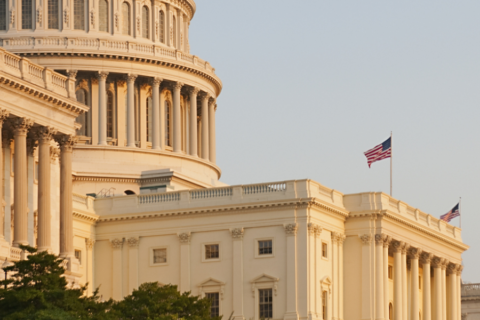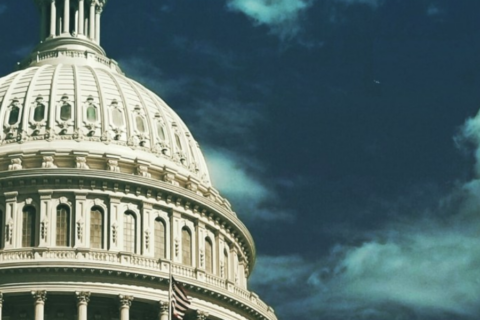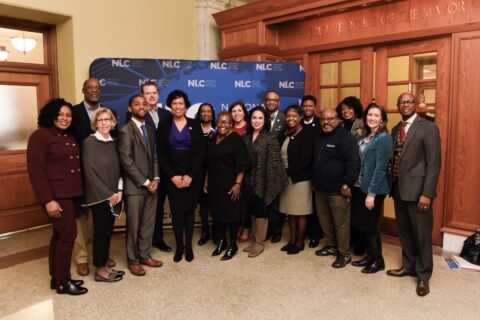Local officials expect our leaders in Washington to meet their most basic obligation and keep the federal government open. Federal shutdowns, partial or total, have an immediate impact – both on local budgets and the most vulnerable residents in our communities. Those impacts are compounded by the broad economic uncertainty resulting from the shutdown itself.
While political and economic uncertainty at the federal level makes it difficult to anticipate all possible consequences of a government shutdown, there are things local leaders can do to help their cities prepare for and navigate the loss of communications and resources from their federal partners. This checklist is a tool to assist in those preparations.
In the event of a shutdown, federal agencies must discontinue all non-essential discretionary functions until new funding legislation has been signed into law. While essential services and mandatory spending programs continue to function, they may be automated and incapable of resolving problems or accounting for unusual circumstances. Moreover, federal employees who provide administration and oversight of federal grant programs important to cities and towns (including oversight, inspection, payment or accounting) are generally not permitted to continue work during a lapse in appropriations.
In other words, federal discretionary grants that are administered to local governments from shut down federal agencies will be unavailable for reimbursement to local governments, and the application process for new grants will be paused until the shutdown ends. Federal agency staff will generally be unavailable to answer questions or offer technical assistance throughout the duration of a federal government shutdown. Federal contractors and employees across the country will likely stop receiving paychecks through the duration of the shutdown and local employees funded by federal grants may also be required to stop work.
There are steps local officials can take to reassure vulnerable residents and mitigate the impact on local budgets. NLC’s checklist for cities, towns and villages will help local leaders:
- Mitigate the local economic harm of the federal shutdown and prepare for additional stress on local operations and services;
- Protect your community’s low-income and other vulnerable residents;
- Advocate for your community.
Mitigate the Local Economic Impact of the Federal Shutdown and Protect Your Operations
A federal shutdown can have economic impacts on your community and municipal operations. Below are ways to mitigate those impacts and ensure essential operations continue.
- Federal lands, monuments, landmarks, and parks within your jurisdiction may be “closed”. Work with state officials and/or local civic institutions and volunteers to “reopen” these areas so that they remain safely accessible to visitors and tourists.
- Develop a communications plan with your department of tourism to keep visitors and convention organizers updated. Consider if your city has the financial resources to allow municipal employees, including public safety and sanitation crews, to temporarily supplant services normally performed by furloughed federal employees. Temporarily providing city services for sanitation and security needs, when possible, will reduce potential profit-losses to tourism-reliant small businesses.
- Take steps to discover if there are federal workers who will be subject to furlough in your community and develop plans to help federal contractors and employees living paycheck-to-paycheck or facing other hardships related to loss of pay. Military bases, federal buildings and non-profit institutions are good places to start. In an extended shutdown, furloughed federal employees may need help paying housing and utility bills to, among other things, avoid damaging credit reports that will follow them log after the immediate shutdown comes to an end. Loss of paychecks will also negatively impact sales revenue for small business owners and tax collection for local governments. If you don’t know where to start, contact the U.S. Office of Personnel Management Office of Intergovernmental Affairs before the federal government officially shuts down to ask for data on federal employees in your area.
- Anticipate disruption, particularly if there are “essential” federal employees in your community who will be forced to work without pay. Past examples include air traffic controllers, Transportation Security Agency employees, FBI agents, DEA agents and correction officers. In an extended shutdown, food insecurity may become a critical concern for the families of federal employees required to work without regular pay.
- Work with your local Chamber of Commerce and other small business associations to establish emergency assistance programs, such as a fund for forgivable loans or grants to eligible small businesses and local entrepreneurs at risk of shutting down as a result of losses related to the federal shutdown.
- Reach out to local utility providers and financial institutions and request a period of credit relief where missed payments are not reported to credit bureaus. Include any special temporary financial products they can offer in your communications to residents, such as no-interest loans or low-cost credit.
Protect Your Community’s Low-Income and Vulnerable Residents
Residents in your community may be impacted by a federal shutdown if they are furloughed or rely on support from federal agencies. Below is a list of ways to support these residents during a government shutdown.
- Develop and administer a public emergency loan fund for furloughed and impacted employees to make their rent, mortgage and utility payments. Enact temporary ordinances to stop evictions and utility shut offs connected to the federal shutdown. Partner with utilities and put a plan in place for customers to avoid disconnections related to a shutdown or loss of federal assistance.
- Federal contractors, unlike full employees, can’t count on backpay being restored to them when the shutdown ends. There may be a rush to file for unemployment assistance. Help contractors and others understand their options and how to navigate the system through public information campaigns.
- City officials should take steps to preserve housing stability for low-income renters during a federal government shutdown. Property managers, landlords and renters might all experience hardship during a federal government shutdown. Landlords rely on monthly cash-flow from rent and low-income renters rely on federal subsidy payments to their landlords. Even if subsidies continue to flow, the system may not be able to accommodate changing circumstances resulting from the shutdown itself. Misinformation on either side can have drastic and lasting consequences, especially if rules enforcement mechanisms are shut down. Reach out to landlords and low-income renters to let them know their rights and responsibilities during the shutdown.
- Public Housing Agencies may lose access to their federal operating funds. Make sure housing directors know HUD’s contingency plan – and if they anticipate needing local government funding to maintain the safety and security of public housing residents. Large urban housing authorities generally have larger reserves for emergency situations, but small and rural agencies may not in an extended shutdown — putting seniors, people with disabilities, and children at risk.
- Coordinate a call to action with hunger and food services, food pantries, etc. For basic human needs, it’s important to communicate the facts correctly to ensure assistance is delivered where it’s needed and when, and to prevent misinformation that can lead to panic.
- Any disruption to the availability of public transportation will severely impact vulnerable workers and residents that lack access to alternatives. Assess the severity of a potential shutdown on your transit system and have a plan in place.
- Work with officials at the county and state level to ensure uninterrupted provision of healthcare to the indigent and the elderly. Funding for senior meals, for preventing elder abuse and adult day care may be at risk.
Advocate for Your Community
Make your voice heard – tell your Congressional delegation to pass a bipartisan agreement to stop a government shutdown.








